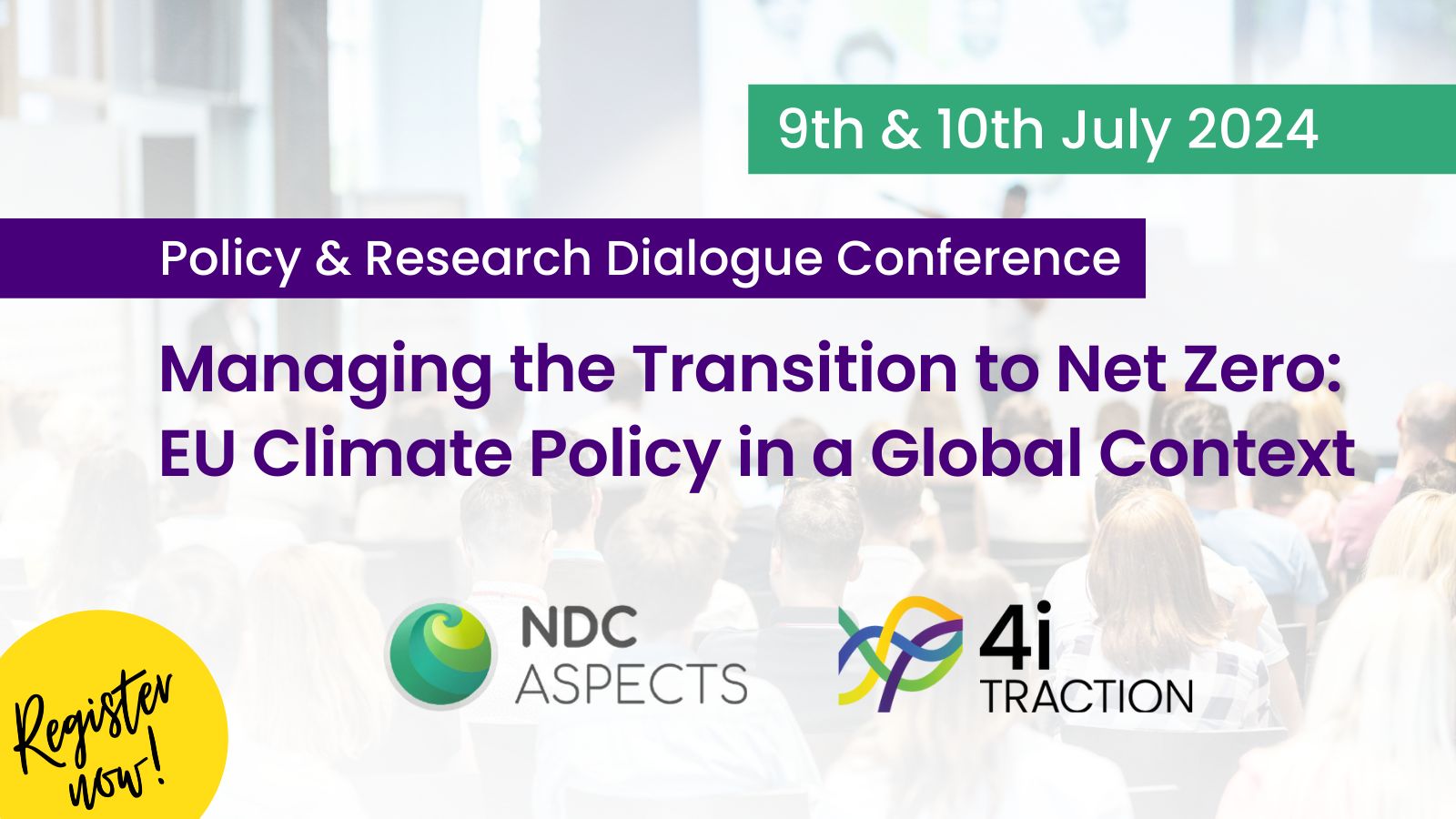Managing the transition to net zero: EU climate policy in a global context
Conferences Webinars - By : 🕯️ Obituary for Julie Evain / Clara CALIPEL
Date and time: the event was divided into two days:
-
Day 1: 9th July: 13:00-18:00
-
Day 2: 10th July: 9:00-16:00
Format: Brussels, VUB U-Residence & Online
In-person participants were invited to a light lunch before the start of the conference and a reception at the end of the first day, as well as lunch on the second day. Remote participation were also be available.
Description:
The transition to climate neutrality has become a central objective for EU policy-making. Targets and policies to achieve it have been advanced and accelerated over the past 4 years. Despite the crises faced since 2020, the EU is making the shift from incremental changes and refinements to the transformative policies needed for a net-zero emissions future – seeking to become more resilient and competitive through a successful transition.
The move to clean energy and new technologies is being spurred on in other parts of the world, with ac like the USA and China actively financing the transition. Partners around the world are watching EU policy developments closely – which increasingly have international implications (#CBAM). With the implementation of the Paris Agreement moving forward, new contributions are expected in financial and policy terms. The next legislative cycle needs to take crucial decisions on how to move EU policy forward in this context.
This conference, took place a month after the European elections, sought to spotlight key issues in the EU’s transition to climate neutrality – and discuss options to address them, with a global context in mind. The conversations among policy-makers and other stakeholders will be kicked-off by content inputs from two EU-funded research projects, 4i-TRACTION and NDC ASPECTS, that have been working over the past three years to generate new insights on climate action challenges in Europe and globally.
Speakers will include:
- Yvon Slingenberg, Deputy Director General for Climate Action at the European Commission;
- Bettina Kampman, Sustainable Industry team lead at CE Delft;
- Benjamin Görlach, head of the economics team at Ecologic Institute.
Agenda: the programme is split into two subthemes:
Day 1: EU policy focus – investments, infrastructure, and international integration
13:30 – 14:30:
- Opening and welcome
- Keynote: A resilient climate policy for a just transition to climate neutrality
- Context: Scientific analysis to support effective policy-making for the transition
14:30 – 14:45: EU Focus: Making EU climate policy fit for the transition
14:45 – 15:30: Thematic Session 1: An EU Climate Investment Agenda
16:00 – 16:45: Thematic Session 2: An Integrated EU Energy Infrastructure Policy
16:45 – 17:50: Future Policy Panel: Effective EU Climate Policymaking in a Competittive Global Context
17:50 – 18:00: Closing of Day 1: Wrap-up and outlook
Day 2: Global policy focus – hard to abate sectors, action by major emitters, cooperation
9:00 – 9:15: Reconnecting: Considering EU Policy in a Global Context
9:15 – 10:30: Thematic Session 3: New messages for the “Hart to Abate” Sectors
10:45 – 12:15: Thematic Session 4: Action Taken by Other Major Emitters
13:15 – 14:15: Thematic Session 5: Bending the Global Curve
14:30 – 15:30: Thematic Session 6: Avenues for International Cooperation
15:30 – 15:45: Closing
